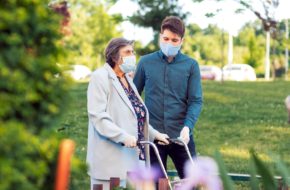When you envision your retirement, where do you picture yourself? Maybe you think of the beach or the mountains. Perhaps you see yourself in a big city or a quiet neighborhood. You can settle down anywhere without your job tying you to a specific region.
“Retirement is a celebrated time in life in which seniors can live to the fullest extent. But seniors often face tough financial decisions during this time,” says Cindy Bonney, Vice President for Sales & Marketing at Diakon Senior Living Services.
“In the tax-friendly state of Pennsylvania, older adults stand to benefit from many incentives, rebates and exemptions that can ease this stress.”
Here at Diakon Senior Living, we can help make this transition easier. We are here to provide for the needs of you or your loved one. This includes financial information, such as tax benefits, that will help protect your nest egg and stretch your dollar when retiring in Pennsylvania.
For example, Pennsylvania retirees enjoy full exemptions on all retirement income, including Social Security benefits, pension income (for those aged 60 or older), and payments from retirement accounts like 401(k) accounts and Individual Retirement Accounts (IRAs). Only three other states in the United States offer an exemption on retirement income tax!
Pennsylvanians also benefit from sales tax exemptions and property taxes. Items like grocery bills, clothing, pharmaceutical drug costs and residential heating fuel are not subject to sales tax, and the 6% sales tax is among the lowest 20 states in America. In addition, property tax and rent relief can be provided by the Property Tax/Rent Rebate Program. Homeowners and renters aged 65 years or older – and widows(ers) aged 50 years or older – could qualify for these tax rebates.









